
Find Help
More Items From Ergsy search
-

Is aspirin recommended for everyone to prevent colorectal cancer?
Relevance: 100%
-

Can aspirin stop colorectal cancer?
Relevance: 92%
-
Is aspirin more effective for certain age groups in preventing colorectal cancer?
Relevance: 90%
-
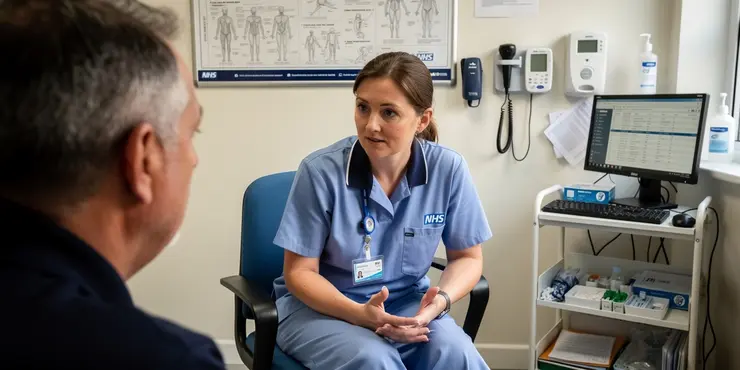
Has aspirin been proven to cure colorectal cancer?
Relevance: 87%
-

Should people with a family history of colorectal cancer take aspirin?
Relevance: 84%
-
Is aspirin effective in preventing other types of cancer?
Relevance: 81%
-

Can aspirin prevent colorectal cancer?
Relevance: 76%
-
Has the FDA approved aspirin for cancer prevention?
Relevance: 75%
-

What should I do if I'm considering aspirin for cancer prevention?
Relevance: 75%
-
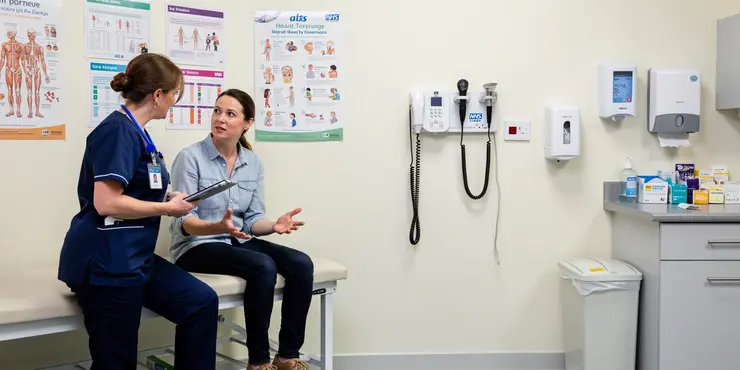
What dosage of aspirin is considered effective for cancer prevention?
Relevance: 73%
-
How long do studies suggest taking aspirin for cancer prevention?
Relevance: 73%
-

What do health organizations say about aspirin and cancer prevention?
Relevance: 71%
-

How does aspirin work to reduce cancer risk?
Relevance: 66%
-
Can lifestyle changes also help prevent colorectal cancer?
Relevance: 63%
-
Are there ongoing studies about aspirin and colorectal cancer?
Relevance: 62%
-

What is colorectal cancer?
Relevance: 60%
-

Is genetic testing available for colorectal cancer?
Relevance: 56%
-
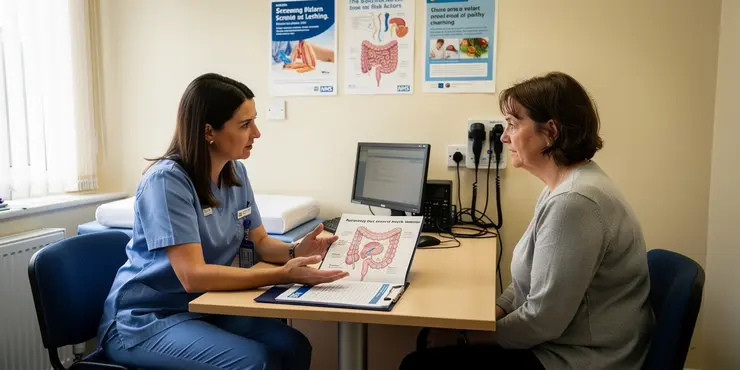
What factors increase my risk of colorectal cancer?
Relevance: 55%
-

What are the recommendations for colorectal cancer screening?
Relevance: 55%
-

Will insurance cover the cost of home colorectal cancer tests?
Relevance: 54%
-
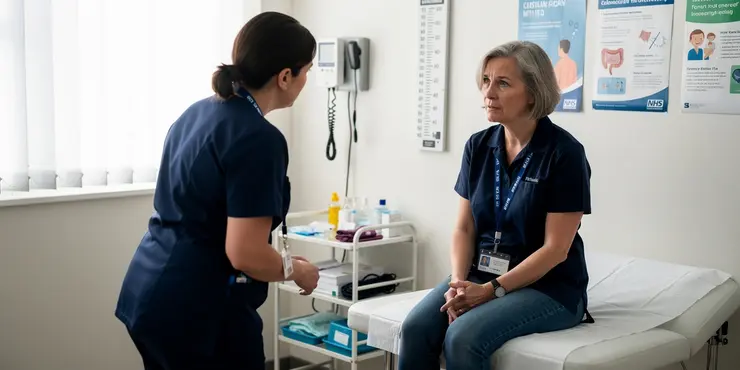
How can I test myself for colorectal cancer?
Relevance: 53%
-
Are there risks associated with home colorectal cancer tests?
Relevance: 52%
-
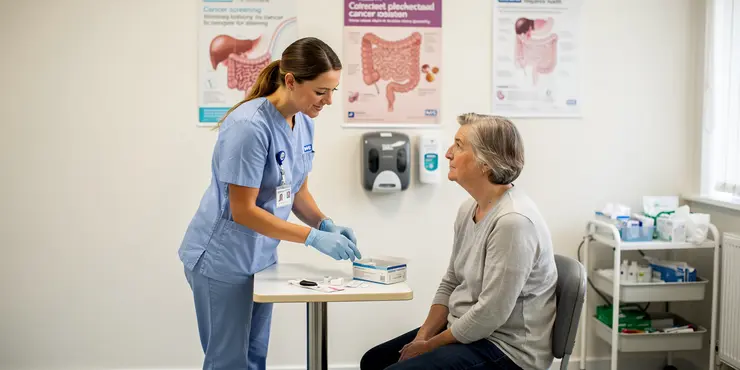
Can home colorectal cancer tests replace a colonoscopy?
Relevance: 51%
-

What are the advantages of an at-home colorectal cancer test?
Relevance: 51%
-

How often should I perform a home colorectal cancer test?
Relevance: 49%
-

Can bowel cancer be prevented?
Relevance: 42%
-
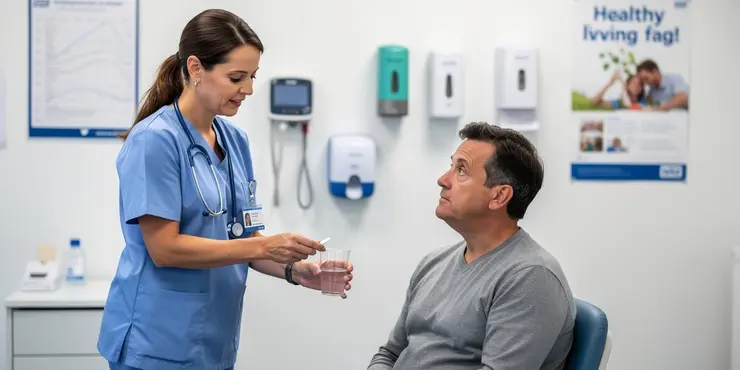
What is Aspirin?
Relevance: 42%
-

Do all studies agree on aspirin's effectiveness in preventing colorectal cancer?
Relevance: 42%
-

Are Aspirin and Ibuprofen the same?
Relevance: 39%
-

Is Paracetamol the same as Aspirin?
Relevance: 39%
-

Are home tests for colorectal cancer accurate?
Relevance: 38%
-
Can aspirin interact with other medications?
Relevance: 38%
-

Can aspirin help in reducing the risk of strokes?
Relevance: 38%
-

What are the side effects of Aspirin?
Relevance: 37%
-

Can I take Aspirin and Ibuprofen together?
Relevance: 35%
-

What are the main methods for testing yourself for colorectal cancer?
Relevance: 35%
-
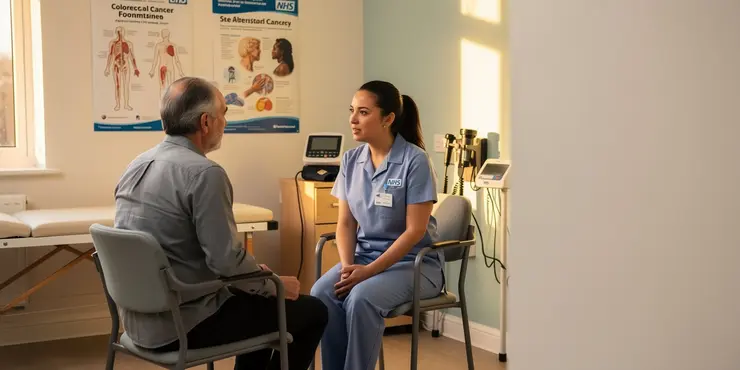
What alternative methods exist to screen for colorectal cancer?
Relevance: 35%
-

Is it safe to use aspirin to treat chickenpox symptoms?
Relevance: 34%
-

Can lifestyle factors influence the results of a colorectal cancer test?
Relevance: 34%
-

At what age should I start testing myself for colorectal cancer?
Relevance: 34%
Introduction to Aspirin and Colorectal Cancer
Aspirin, a common over-the-counter medication, is widely used for pain relief, reducing inflammation, and lowering fever. Besides its conventional uses, research has been exploring its potential role in preventing certain types of cancer, including colorectal cancer. Colorectal cancer is a significant health concern in the UK, being the fourth most common cancer and a leading cause of cancer-related deaths. This article examines the link between aspirin and colorectal cancer prevention.
Scientific Evidence Supporting Aspirin Use
Numerous studies have investigated the potential of aspirin to prevent colorectal cancer. Research has shown that regular use of low-dose aspirin can reduce the incidence of adenomatous polyps, which are precursors to colorectal cancer. One of the landmark studies, known as the ASPREE trial, indicated that long-term aspirin use could indeed lower the risk of developing colorectal cancer by inhibiting the growth of these polyps.
Aspirin’s anti-inflammatory properties are thought to play a crucial role in this protection. Inflammation is a known risk factor for cancer development, and aspirin's ability to reduce inflammation might contribute to its cancer-preventing effects. Additionally, aspirin inhibits the cyclooxygenase enzymes (COX-1 and COX-2), which are involved in colorectal tumor formation.
Risks and Considerations
While aspirin has potential benefits, it is not without risks. Long-term use of aspirin can lead to side effects such as gastrointestinal bleeding and hemorrhagic strokes. Therefore, it is imperative for individuals to consult with healthcare professionals before starting a regular aspirin regimen for cancer prevention. The benefits may outweigh the risks in certain high-risk groups, but this balance needs to be carefully evaluated.
Recommendations for Aspirin Use
For individuals at average risk of colorectal cancer, the NHS and other health bodies do not routinely recommend aspirin solely for cancer prevention due to potential side effects. However, those with a family history of colorectal cancer or other risk factors might benefit. Decisions should be personalized, taking into account other health conditions and individual risk profiles. Your GP is the best source for personalized medical advice on whether aspirin is suitable for you.
Conclusion
Aspirin offers promising possibilities for colorectal cancer prevention, supported by substantial scientific evidence. However, the decision to use aspirin must consider potential risks and is best made with guidance from a healthcare provider. Further studies continue to refine our understanding of who might benefit most from using aspirin as a preventive measure against colorectal cancer. As research evolves, recommendations for aspirin use may be better tailored to individual patient needs, balancing the benefits against the risks.
What is Aspirin and Can It Help Prevent Bowel Cancer?
Aspirin is a common medicine you can buy at the store. People use it to stop pain, reduce swelling, and lower fevers. Scientists are also studying how aspirin might help prevent certain cancers, like bowel cancer. Bowel cancer is serious in the UK. It is the fourth most common cancer and causes many deaths. This article looks at how aspirin might help stop bowel cancer.
Does Science Show Aspirin Helps?
Many studies have looked at whether aspirin can stop bowel cancer. They found that taking a small amount of aspirin regularly can help prevent growths called polyps. Polyps can turn into cancer. One important study found that taking aspirin for a long time could help stop these polyps from growing. Aspirin helps by reducing swelling in the body. Swelling can lead to cancer. Aspirin also blocks certain enzymes that help cancer grow.
Are There Risks with Aspirin?
While aspirin can be helpful, it can have risks too. Taking aspirin for a long time can cause bleeding in the stomach and even strokes. That’s why it's very important to talk to a doctor before taking aspirin every day to prevent cancer. Some people might benefit more, but it depends on their health and risks.
Who Should Take Aspirin?
For most people, the NHS doesn’t recommend taking aspirin just to prevent cancer because of the side effects. But people with a family history of bowel cancer or other risk factors might benefit. It's important to talk to your doctor first. They can tell you if aspirin is a good choice for you based on your health.
Summary
Aspirin might help stop bowel cancer based on many studies. But you need to think about possible risks too. It's best to decide with your doctor if aspirin is right for you. More research will help us understand who can benefit most from aspirin. As we learn more, we might have better advice on using aspirin to stop cancer, making sure the good parts are more than any risks.
Frequently Asked Questions
Useful Links
This website offers general information and is not a substitute for professional advice.
Always seek guidance from qualified professionals.
If you have any medical concerns or need urgent help, contact a healthcare professional or emergency services immediately.
Some of this content was generated with AI assistance. We’ve done our best to keep it accurate, helpful, and human-friendly.
- Ergsy carfully checks the information in the videos we provide here.
- Videos shown by Youtube after a video has completed, have NOT been reviewed by ERGSY.
- To view, click the arrow in centre of video.
- Most of the videos you find here will have subtitles and/or closed captions available.
- You may need to turn these on, and choose your preferred language.
- Go to the video you'd like to watch.
- If closed captions (CC) are available, settings will be visible on the bottom right of the video player.
- To turn on Captions, click settings .
- To turn off Captions, click settings again.
More Items From Ergsy search
-

Is aspirin recommended for everyone to prevent colorectal cancer?
Relevance: 100%
-

Can aspirin stop colorectal cancer?
Relevance: 92%
-
Is aspirin more effective for certain age groups in preventing colorectal cancer?
Relevance: 90%
-

Has aspirin been proven to cure colorectal cancer?
Relevance: 87%
-

Should people with a family history of colorectal cancer take aspirin?
Relevance: 84%
-
Is aspirin effective in preventing other types of cancer?
Relevance: 81%
-

Can aspirin prevent colorectal cancer?
Relevance: 76%
-
Has the FDA approved aspirin for cancer prevention?
Relevance: 75%
-

What should I do if I'm considering aspirin for cancer prevention?
Relevance: 75%
-

What dosage of aspirin is considered effective for cancer prevention?
Relevance: 73%
-
How long do studies suggest taking aspirin for cancer prevention?
Relevance: 73%
-

What do health organizations say about aspirin and cancer prevention?
Relevance: 71%
-

How does aspirin work to reduce cancer risk?
Relevance: 66%
-
Can lifestyle changes also help prevent colorectal cancer?
Relevance: 63%
-
Are there ongoing studies about aspirin and colorectal cancer?
Relevance: 62%
-

What is colorectal cancer?
Relevance: 60%
-

Is genetic testing available for colorectal cancer?
Relevance: 56%
-

What factors increase my risk of colorectal cancer?
Relevance: 55%
-

What are the recommendations for colorectal cancer screening?
Relevance: 55%
-

Will insurance cover the cost of home colorectal cancer tests?
Relevance: 54%
-

How can I test myself for colorectal cancer?
Relevance: 53%
-
Are there risks associated with home colorectal cancer tests?
Relevance: 52%
-

Can home colorectal cancer tests replace a colonoscopy?
Relevance: 51%
-

What are the advantages of an at-home colorectal cancer test?
Relevance: 51%
-

How often should I perform a home colorectal cancer test?
Relevance: 49%
-

Can bowel cancer be prevented?
Relevance: 42%
-

What is Aspirin?
Relevance: 42%
-

Do all studies agree on aspirin's effectiveness in preventing colorectal cancer?
Relevance: 42%
-

Are Aspirin and Ibuprofen the same?
Relevance: 39%
-

Is Paracetamol the same as Aspirin?
Relevance: 39%
-

Are home tests for colorectal cancer accurate?
Relevance: 38%
-
Can aspirin interact with other medications?
Relevance: 38%
-

Can aspirin help in reducing the risk of strokes?
Relevance: 38%
-

What are the side effects of Aspirin?
Relevance: 37%
-

Can I take Aspirin and Ibuprofen together?
Relevance: 35%
-

What are the main methods for testing yourself for colorectal cancer?
Relevance: 35%
-

What alternative methods exist to screen for colorectal cancer?
Relevance: 35%
-

Is it safe to use aspirin to treat chickenpox symptoms?
Relevance: 34%
-

Can lifestyle factors influence the results of a colorectal cancer test?
Relevance: 34%
-

At what age should I start testing myself for colorectal cancer?
Relevance: 34%


